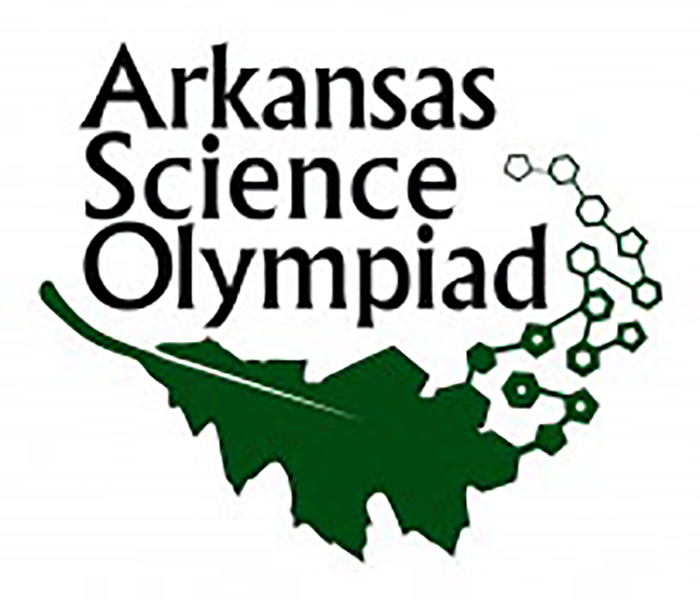UA Little Rock to host Arkansas Science Olympiad April 6-7
This weekend more than 300 middle- and high-school students from across Arkansas will convene at the University of Arkansas at Little Rock for the 8th annual Arkansas Science Olympiad, which is coordinated through the university’s STEM Education Center.
The opening ceremony begins at 6 p.m. Friday, April 6, in Dickinson Hall lobby, and competitions run Saturday, April 7, from 9 a.m. to 2 p.m. around campus. Students will compete for prizes and the chance to advance to the National Science Olympiad to be held May 18-19 at Colorado State University in Fort Collins.
This year’s Science Olympiad features 42 events – 21 for middle school students (grades 6-8) and 21 events in the high school division (grades 9-12). Each event presents a challenge that students have to solve within a time limit.
Medals will be awarded in each event, and trophies awarded to highest-scoring teams. New this year is the Raye Montague Trophy, which will be awarded to the highest-ranking majority female team. The award is named in honor of Arkansas native Raye Montague, an engineer for the U.S. Navy who in 1970 created the first computer-generated rough draft of a naval ship. She was given a month to complete the assignment and finished the task in 19 hours. (Raye Montague is also the mother of David Montague, director of eLearning and professor of criminal justice at UA Little Rock.)
“One of the goals of Science Olympiad is to encourage more women to participate in the sciences, and we encourage them through competition,” said Eric Kaufmann, professor and director of undergraduate studies of mathematics and statistics, and state director of the Arkansas Science Olympiad.
The competition started with just seven teams in 2011; this year 29 teams are competing. This is also the first year for multiple regional tournaments with earlier competitions held at Northwest Arkansas Community College and ASU-Newport.
Participating schools include Central Arkansas Christian School in North Little Rock, Benton High, Sylvan Hills High in Sherwood, Parkview Science and Arts Magnet in Little Rock, Lisa Academy West, Lisa Academy North High, Lisa Academy North Middle, Lisa Academy Chenal, Haas Hall Academy in Fayetteville and Bentonville, Little Rock Central High School, County Line High in Branch, Nettleton Junior High and High schools, The Academies at Jonesboro, Little Rock Christian Academy, Cabot Junior High and Annie Camp Junior High in Jonesboro.
“It’s definitely growing,” Kaufmann said. “Our entire goal was to get students excited about science, and there’s an enthusiasm in these students. Science Olympiad just brings it out.”
About three dozen UA Little Rock faculty have a hand in this year’s events – from devising the competitions to running them. Scientists from UAMS, the Arkansas Geologic Survey, the National Oceanic Atmospheric Administration, Museum of Discovery, Central Arkansas Astronomical Society, and the Little Rock Zoo also are helping run the events. In addition, about two dozen undergraduate and graduate students will be assisting as community service.
“It’s really a tremendous outreach program,” said Thomas Clifton, interim dean of the College of Arts, Letters, and Sciences at UA Little Rock. “Our community partners really help us make this event a success, and our own students get very involved. It’s our hope that every middle school or high school student who participates in Science Olympiad feels the excitement that comes from solving a problem and reaching a goal.”
Here’s just a few of the creative challenges the students will have waiting for them when they get to UA Little Rock:
Battery Buggy – Students bring their pre-built buggy to the event and are given a set distance their buggy must travel. They must design a cart to travel that exact distance in the quickest time and stop at the target point.
Mystery Architecture – Student have 30 minutes to design, build, and test a structure (bridge, tower, or cantilever beam) using unknown materials.
Wright Stuff – Students design, build, and launch rubber-band powered balsa wood airplanes. The plane that stays in air the longest is the winner.
Game-On: Students are given a theme and have 50 minutes to design and develop a computer game using the program SCRATCH.
Hovercraft – Students take a written test that covers mechanics, and then they build a craft, which must travel from Point A to Point B in a certain time.
Missions Possible (Rube Goldberg Machine.) The challenge: Build a simple machine in the most complicated way possible.
Towers – The team that designs the lightest tower that supports the most weight will be declared the winner.
Potions and Poisons – Chemistry challenge based on household poisons and venoms found in nature.
